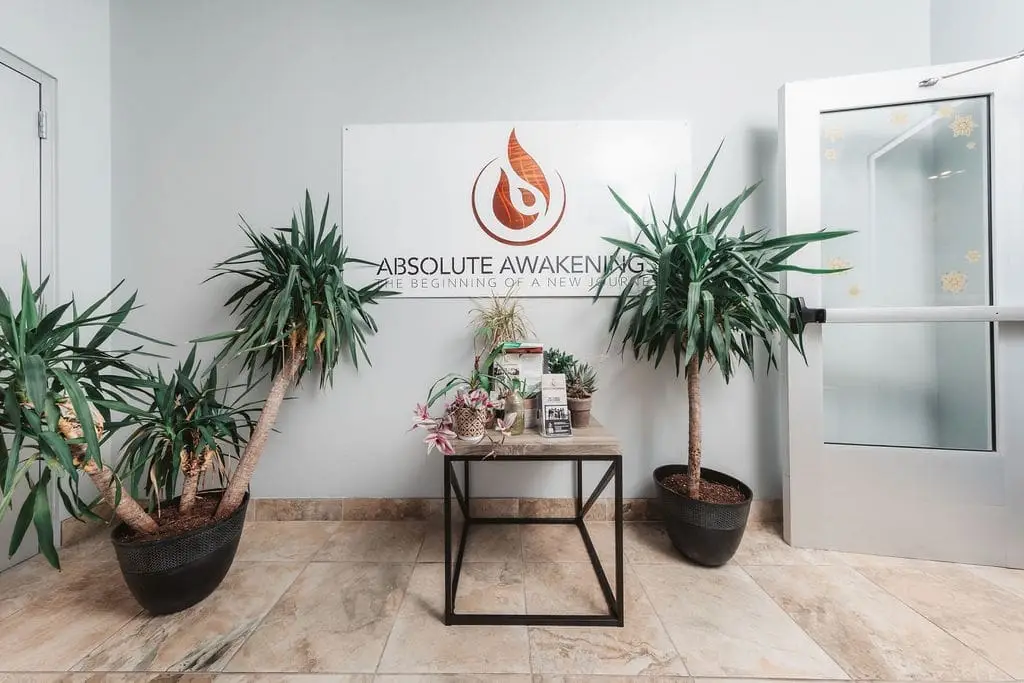In the realm of addiction recovery, dual diagnosis treatment stands out as a critical approach for individuals battling both mental health disorders and substance use disorders. Often, these conditions are interconnected, with one exacerbating the other. Hence, a comprehensive treatment strategy is necessary to address both issues simultaneously, ensuring a holistic recovery path.
Dual diagnosis treatment is tailored to meet the unique needs of each patient, recognizing that mental health disorders such as depression, anxiety, PTSD, or bipolar disorder can significantly impact substance abuse patterns. By understanding the complex interplay between these disorders, treatment plans can be meticulously crafted to provide the multifaceted care required. This often involves a combination of medication management, psychotherapy, and behavioral therapies to tackle the root causes and symptoms of both conditions.
In New Jersey, numerous facilities offer specialized dual diagnosis treatment programs. These programs are designed to provide a safe, supportive environment where individuals can explore the underlying causes of their disorders and develop effective coping strategies. With professional guidance, patients learn to manage their mental health symptoms while also working towards sobriety.
Effective dual diagnosis treatment not only focuses on the immediate symptoms but also equips individuals with the tools they need for long-term recovery. Through personalized care plans and ongoing support, patients can achieve a more stable and fulfilling life.
Yes, You Can Get Your Life Back. Call Absolute Awakenings Today.
Importance of Dual Diagnosis in Recovery
The significance of dual diagnosis in the recovery journey cannot be overstated. When individuals struggle with both a mental health disorder and a substance use disorder, addressing only one of these issues often leads to incomplete recovery and a higher risk of relapse. This is why understanding and implementing dual diagnosis treatment is crucial in achieving sustained sobriety and mental wellness.
The importance of dual diagnosis lies in its holistic approach. It acknowledges the fact that untreated mental health issues can be a significant barrier to overcoming addiction. For instance, someone with untreated depression may use substances as a form of self-medication, while someone dealing with anxiety might turn to drugs as a coping mechanism. Without addressing the mental health component, treatment for addiction alone may fall short.
By integrating mental health care into addiction recovery, dual diagnosis treatment provides a more comprehensive path to healing. Patients are given the opportunity to understand the triggers and underlying causes of their substance use while simultaneously learning strategies to manage their mental health symptoms. This dual focus not only aids in reducing relapse rates but also enhances the overall quality of life for individuals in recovery.
Furthermore, dual diagnosis treatment encourages the development of a robust support network, involving healthcare providers, therapists, family, and peers. Such an interconnected support system is vital for ongoing recovery, offering encouragement, accountability, and resources as individuals work towards a healthier future.
Benefits of Seeking Treatment in NJ
New Jersey offers a unique landscape for those seeking dual diagnosis treatment, providing a range of benefits that can enhance the recovery experience. The state is home to numerous reputable facilities, including those that specialize in the intricate needs of individuals facing both mental health disorders and addiction.
One of the primary benefits of seeking treatment in NJ is access to a diverse network of skilled professionals. These include psychiatrists, therapists, counselors, and addiction specialists who are experienced in managing the complexities of dual diagnosis. Their expertise ensures that patients receive personalized and comprehensive care tailored to their specific needs.
Moreover, New Jersey’s strategic location offers convenience and accessibility. Whether you are a resident of the state or coming from nearby areas, the proximity to major cities and transportation hubs makes it easier to access treatment facilities. This accessibility is critical for individuals who may require ongoing outpatient services or regular follow-up care.
In addition to professional expertise and convenience, NJ’s treatment centers often emphasize a community-oriented approach. This fosters a sense of belonging and support, which is essential for long-term recovery. Support groups, family therapy sessions, and peer-led initiatives are commonly integrated into treatment plans, helping individuals build strong, supportive networks that extend beyond the treatment period.
Finally, the serene and picturesque environment of New Jersey serves as an ideal backdrop for recovery. The tranquil surroundings can significantly enhance therapeutic outcomes by reducing stress and promoting a sense of peace and well-being, which are crucial elements in the healing process.
Comprehensive Care Approaches
A pivotal component of effective dual diagnosis treatment is the adoption of comprehensive care approaches that address both addiction and mental health disorders simultaneously. In New Jersey, treatment centers are increasingly integrating multifaceted strategies to cater to the complex needs of individuals facing dual diagnoses.
Comprehensive care often begins with a thorough assessment to identify the specific mental health and substance use disorders present. This initial evaluation is crucial as it lays the groundwork for a personalized treatment plan. By understanding the intricacies of each individual’s condition, clinicians can tailor interventions that effectively target both issues.
One key element of comprehensive care is the incorporation of evidence-based therapies. These may include Cognitive Behavioral Therapy (CBT), Dialectical Behavior Therapy (DBT), and motivational interviewing, all of which have proven effective in treating both mental health and substance use disorders. Such therapies help individuals develop coping mechanisms, modify harmful behaviors, and address the underlying psychological factors contributing to their addiction.
Moreover, holistic therapies are often integrated to support overall well-being. Techniques such as mindfulness meditation, yoga, art therapy, and nutritional counseling can enhance traditional treatments by promoting physical health and emotional balance. These holistic approaches are particularly beneficial in reducing stress and preventing relapse.
Additionally, family involvement is a crucial aspect of comprehensive care. By including family therapy and education, treatment centers aim to address familial dynamics and educate loved ones about dual diagnosis, fostering a supportive environment for long-term recovery. This integrative approach ensures that the treatment is not just about managing symptoms, but also about healing relationships and building a sustainable, healthy lifestyle.
Choosing the Right Treatment Center
Selecting the right treatment center is a critical step for individuals seeking dual diagnosis treatment in New Jersey. With numerous options available, understanding what to look for in a facility can significantly impact the success of the recovery journey. When evaluating treatment centers, there are several essential factors to consider.
First and foremost, ensure that the center offers integrated treatment programs that address both mental health disorders and substance use simultaneously. Dual diagnosis requires a specialized approach, and the facility should have expertise in handling co-occurring disorders. Look for centers that employ trained professionals, including psychiatrists, psychologists, and addiction specialists, who can provide comprehensive care.
Another important factor is the range of therapies and services provided. A high-quality treatment center will offer a variety of evidence-based therapies, such as Cognitive Behavioral Therapy (CBT), family therapy, and group counseling. Additionally, holistic therapies like yoga, meditation, and art therapy can enhance traditional treatment methods, offering a well-rounded approach to recovery.
Accreditation and licensing are also crucial indicators of a reputable treatment center. Verify that the facility is accredited by recognized organizations, such as the Joint Commission or the Commission on Accreditation of Rehabilitation Facilities (CARF). Accreditation ensures that the center adheres to high standards of care and ethical practices.
Lastly, consider the center’s location and environment. Some individuals may prefer a serene, secluded setting that promotes healing, while others might benefit from a facility closer to home that allows for family involvement. Additionally, inquire about the center’s aftercare support and resources, as ongoing support is vital for maintaining long-term recovery.
By carefully evaluating these factors, individuals can make an informed decision and choose a treatment center that best meets their unique needs and goals.
Steps to Begin Your Recovery Journey
Embarking on the recovery journey can be daunting, but understanding the steps involved can ease the process and set a solid foundation for success. The first step is acknowledging the need for help and reaching out to a qualified treatment center. This initial contact is crucial and can be facilitated through a simple phone call or an online inquiry.
Once you’ve reached out, the next step is an intake assessment. This comprehensive evaluation helps the treatment center understand your specific needs, including any mental health disorders and substance use issues you may be facing. The assessment will guide the development of a personalized treatment plan tailored to your unique situation.
Following the assessment, you will begin the treatment phase. This stage often includes a combination of therapies designed to address both mental health and substance use disorders. Engaging in these therapies is vital for developing coping strategies, understanding the root causes of addiction, and building resilience for long-term recovery.
Another critical step is participating in aftercare planning. As you progress through treatment, the center will work with you to establish a support system and resources to sustain your recovery outside of the facility. This may involve continued therapy, support groups, and lifestyle changes that promote sobriety.
Throughout this journey, it is important to remain committed and open to the process. Recovery is a lifelong commitment, and having the right support can make all the difference. Remember, you are not alone in this journey.
Yes, You Can Get Your Life Back. Call Absolute Awakenings Today. For more information, visit our admissions page at absoluteawakenings.com/admissions.


















